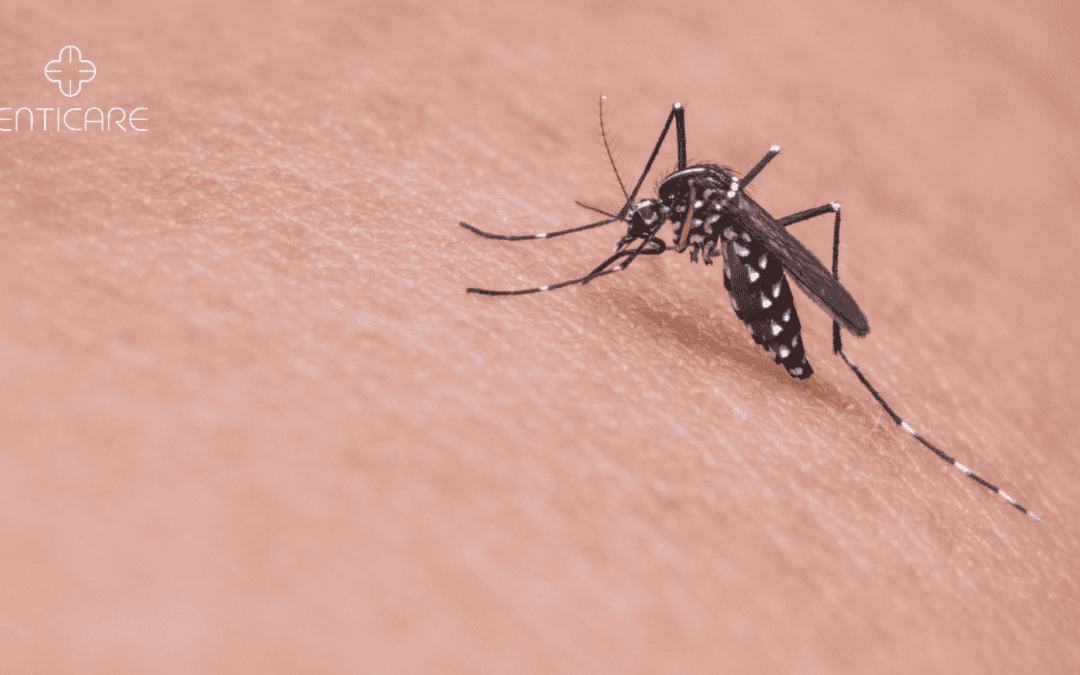Mosquito bites are a common nuisance, but for some individuals, they can lead to severe allergic reactions. Understanding the symptoms, causes, and solutions for mosquito bite allergies is crucial to manage and prevent these reactions effectively.
Understanding Mosquito Bite Allergies
What is a Mosquito Bite Allergy?
A mosquito bite allergy, also known as Skeeter syndrome, occurs when the immune system reacts intensely to the proteins in a mosquito’s saliva, leading to itchy mosquito bites. For most people, a mosquito bite results in mild itching and redness. However, those with allergies can experience severe inflammation and other symptoms from bug bites that require medical attention.
Who is at Risk?
Individuals with a history of allergic reactions to insect bites, children, and people with weakened immune systems are more likely to develop mosquito bite allergies. Understanding your risk factors can help you take preventive measures and seek appropriate treatment when necessary.
How Does the Immune System React?
When a mosquito bites, it injects saliva into the skin to prevent blood clotting. The immune system of an allergic person mistakenly identifies these proteins infected mosquito, as harmful, releasing histamines and other chemicals to combat them. This reaction causes the severe symptoms associated with mosquito bite allergies. In rare cases, severe reactions can include body aches, headache, and fever.
Recognizing the Symptoms of Mosquito Bite Allergies
Localized Reactions to Itchy Mosquito Bites
People with mosquito bite allergies often experience localized reactions at the bite site. Symptoms when mosquito bites itch can include intense itching, redness, and swelling. In some cases, the affected area can become large and hard, resembling hives or welts.
People with mosquito bite allergies often experience localized reactions at the bite site. Symptoms of itchy bites can include intense itching, redness, and swelling. In some cases, the affected area can become large and hard, resembling hives or welts.
Systemic Reactions
In more severe cases, mosquito bite allergies can cause systemic reactions that affect the entire body. Symptoms can include fever, headache, fatigue, and nausea. These symptoms require immediate medical attention to prevent complications.
Additionally, mosquito bites can transmit diseases such as West Nile virus.
Anaphylaxis: Severe Allergic Reaction
Though rare, anaphylaxis represents the most severe form of mosquito bite allergy. This life-threatening allergic reaction that can cause difficulty breathing, swelling of the throat and tongue, a rapid drop in blood pressure, and loss of consciousness. Immediate emergency care is essential to treat anaphylaxis effectively.
Identifying the Causes of Mosquito Bite Allergies
Protein Sensitivity
Mosquito saliva contains proteins that prevent blood clotting and promote feeding. Individuals with mosquito bite allergies have an immune system that overreacts to these proteins, causing the severe symptoms associated with the allergy.
Genetic Factors
Genetics can play a role in mosquito bite allergies. If you have family members with a history of allergic reactions to insect bites, you might be more susceptible to developing similar allergies. Understanding your genetic predisposition can help you take preventive measures.
Environmental Influences
Living in or traveling to areas with high mosquito populations can increase your risk of mosquito bite allergies. Warm, humid climates provide ideal breeding grounds for mosquitoes, leading to more frequent bites and a higher likelihood of allergic reactions. Mosquito bites can also transmit diseases such as yellow fever.
Effective Solutions to Manage Mosquito Bite Allergies
Preventive Measures Using Insect Repellent
Taking preventive measures, such as using insect repellents, can significantly reduce the risk of mosquito bites and allergic reactions. Use insect repellent containing DEET, wear long sleeves and pants when outdoors, and avoid areas with stagnant water where mosquitoes breed. Keeping your living environment mosquito-free is also essential to prevent mosquito bites.
Immediate Treatment
If severe reaction to a mosquito bite occurs, applying a cold compress can reduce swelling and itching. Over-the-counter antihistamines and hydrocortisone creams can help manage mild allergic reactions. Avoid scratching the bite to prevent infection and further irritation.
Medical Intervention
For severe reactions, medical intervention is crucial. An allergist can provide a detailed diagnosis and recommend treatment options such as prescription antihistamines, corticosteroids, or epinephrine auto-injectors for emergency use. Immunotherapy might be an option for individuals with chronic severe reactions.
Seeking Professional Help
Allergy Testing and Diagnosis
If you suspect a mosquito bite allergy, seeking professional help is essential. An allergist can perform skin or blood tests to diagnose the allergy accurately. Once diagnosed, the allergist can recommend appropriate treatment options, including medication and immunotherapy.
Long-Term Management
Effective long-term management of mosquito bite allergies involves ongoing care and prevention. Regular follow-ups with an allergist, maintaining a mosquito-free environment, and using preventive measures can help keep allergic reactions to mosquito bites at bay.
Personalized Treatment Plans
An allergist can develop a personalized treatment plan based on your specific symptoms and severity. This plan may include lifestyle modifications, medication, and emergency action plans to ensure you are prepared for any allergic reactions.
Take Action Against Mosquito Bite Allergies
Mosquito bite allergies can significantly impact your quality of life, but understanding the symptoms, causes, and solutions female mosquitoes bite you can help you manage and prevent severe reactions. Don’t let mosquito bites control your health and well-being.
Take the first step towards managing mosquito bite allergies by scheduling an appointment with our experts. Visit Enticare to book your consultation today and start living allergy-free!
By following these steps, you can effectively manage mosquito bite allergies and improve your overall health and comfort.

